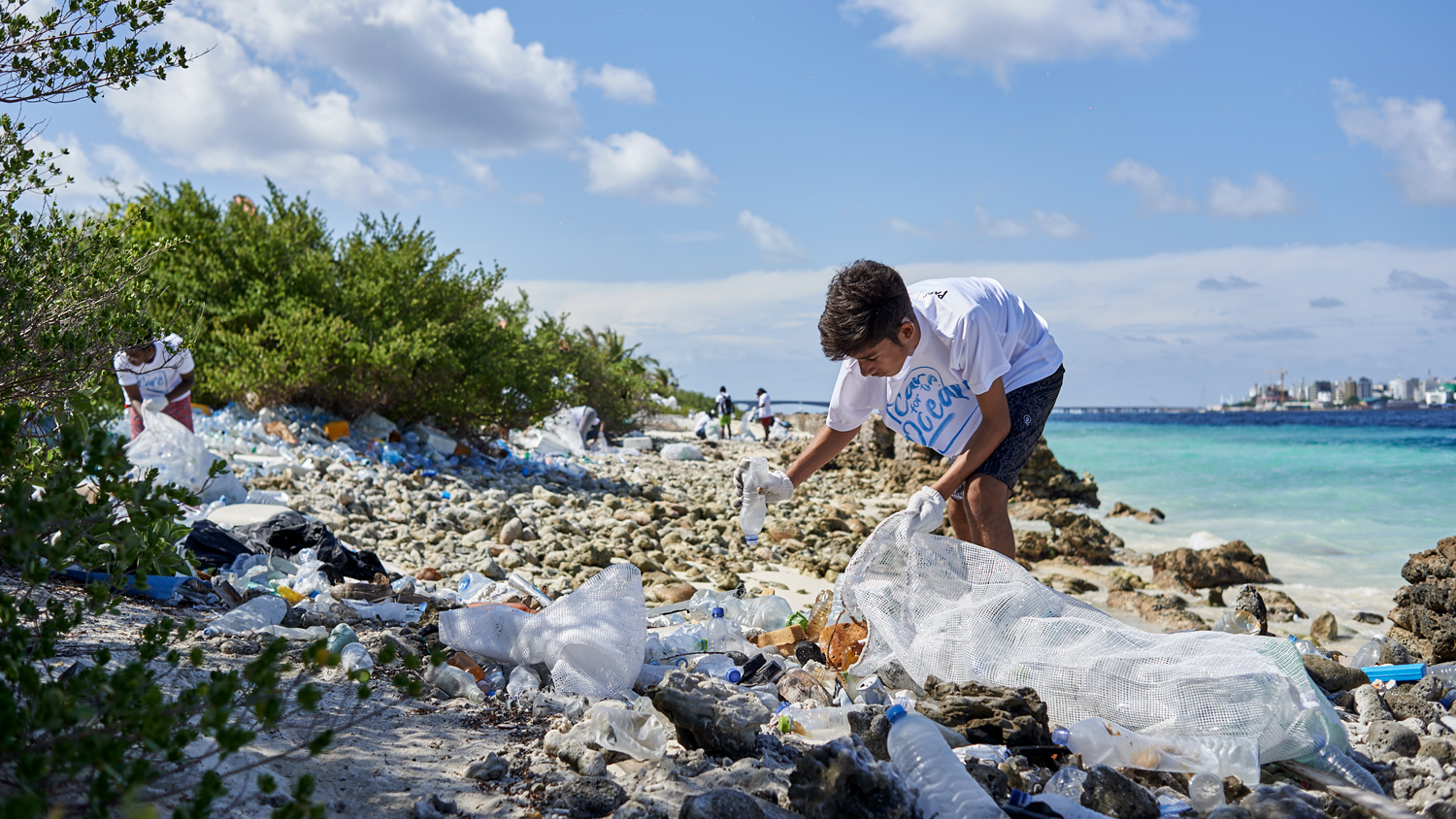Male’, Maldives – National Geographic states that Maldives’ beach sand and offshore waters are home to the world’s highest levels of microplastics.
According to a report released by National Geographic, across 22 sites on Naifaru, the most populous island in Maldives, marine scientists from Flinders University counted high concentrations of microplastics in beach sand and shallow coral reef waters. In fact, most of the particles were the same size as prey consumed by various marine life on the reef.
While the Maldives consists of a tropical marine ecosystem that supports more than 1,100 species of fish and 929 other species, ranging from amphipods to whales, as well as 170 species of sea birds, National Geographic reveals that approximately 71 triggerfish were collected by the researchers consisted of plastic in their bellies; an average of eight fibres per fish.
The size of the microplastics is extremely important because they get into the smallest fish and invertebrates, which are then consumed by larger fish.
Flinders conservation biologist Karen Burke Da Silva
One of the smallest island nations of up to 1,192 islands in the Indian Ocean, the Maldivian government added one more artificially constricted island in 1992 to be used as a landfill, where roughly 500 tons of trash are dumped every day.
According to government statistics, a single tourist produces almost twice as much trash per day as a resident of the capital city of Malé, and five times as much as residents of the other 200 populated islands. In 2019, Maldives was ranked as the world’s fourth-largest producer per capita of mismanaged waste.
In hopes of decreasing the use of plastic in the island nation, the Government of Maldives decided on November 5, 2020, to ban the import of certain single-use plastics, deemed as such by President Ibrahim Mohamed Solih, starting from June 1st of 2021.
As per the amendment, the President categorised and published 12 categories of single-use plastics in the Government Gazette import of which are currently banned in the Maldives.
Items declared as single-use plastics by the President
- Plastic drinking straw
- Single-use plastic-based plates, cutleries and stirrers.
- Styrofoam lunch box
- Plastic shopping bags below 30×30 cm (including oxo-degradable and synthetic polymer based biodegradable plastics)
- Plastic shopping bags below 50-micron thickness (including oxo degradable and synthetic polymer based biodegradable plastics)
- Imported sweet areca nuts in plastic wrapping
- Single-use plastic cups below 250ml
- Cotton buds with plastic stems
- Shampoo and soap bottles in plastic packaging that are 50 ml and below
- Shampoo and soap bottles in plastic packaging from 50 ml to 200 ml
- All imported beverages in PET bottles below 500 ml (water, carbonated and non-carbonated drinks)
- All imported water that is 01 liter and below packed in P.E.T packaging
In addition to the items, imports that are banned from June 1st, 2021, this list also includes items that are to be banned from December 2022 and 2023.
While the banning of these items has attracted the attention of many, the Government aims to steadily phase out single-use plastic with the implementation of this amendment.
Phasing out the use of SUPs in the Maldives is one of the Government’s key environmental pledges. During the first 100 days following his inauguration, President Solih launched a campaign to minimize SUP-use in the President’s Office, where he noted the use of SUPs in the Maldives had been at an alarmingly high level as researches show that if current trends continue, there will be more plastic in the sea than fish by 2050.





